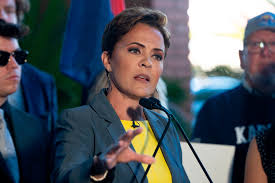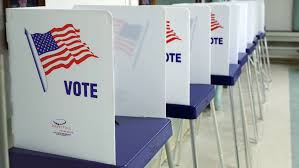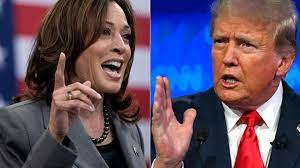Politics
Harris Matches Trump’s Proposal to Ban Taxes on Tips at Las Vegas Rally
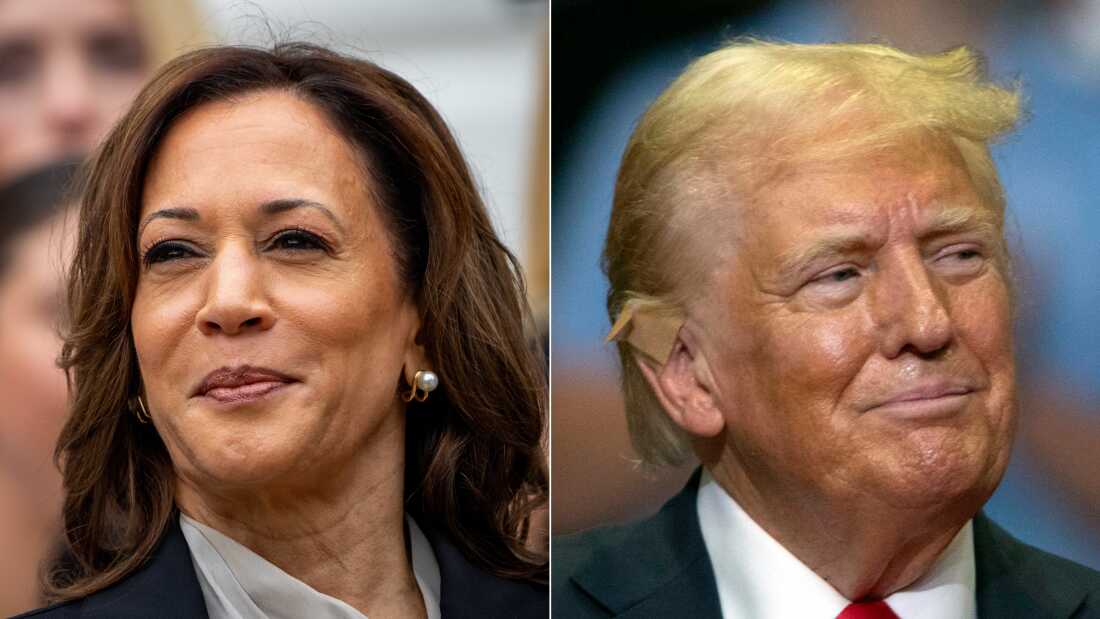
Vice President Kamala Harris announced a plan to eliminate taxes on tips for service and hospitality workers if she wins the presidency, mirroring a proposal put forth by former President Donald Trump earlier this year. Harris made this pledge during a rally in Las Vegas, a critical battleground state where the hospitality sector plays a significant role in the economy.
Speaking to a crowd of over 12,000 supporters on Saturday, Harris emphasized her commitment to supporting working families, stating, “It is my promise to everyone here, when I am president, we will continue our fight for working families of America; including to raise the minimum wage, and eliminate taxes on tips for service and hospitality workers.”
Harris’s proposal came shortly after receiving the endorsement of the Culinary Workers Union, a powerful labor group in Nevada. This endorsement is expected to bolster her campaign’s appeal among the state’s sizable workforce in the hospitality industry, which accounts for roughly a quarter of Nevada’s employment.
Trump, who had introduced the tax-free tip idea during a rally in Las Vegas in June, quickly responded to Harris’s announcement on social media, accusing her of copying his proposal. “She played ‘COPYCAT’ with, NO TAXES ON TIPS!” Trump wrote on Truth Social.
Both candidates’ proposals would require new legislation and congressional approval to become law. Harris’s campaign acknowledged this challenge and indicated that any tax-free tip policy would likely include an income cap and safeguards to prevent higher-income individuals from exploiting the policy.
Critics of the proposal, including some economists, argue that eliminating taxes on tips might not effectively target the intended beneficiaries—low-income workers. They caution that such a policy could result in significant revenue losses for the federal government, with estimates ranging from $150 billion to $250 billion over the next decade. Additionally, some experts believe that a tax-free tip policy may not be the most efficient way to alleviate the tax burden on low-income Americans, as only a small portion of this workforce earns tips, and many already pay little to no income tax.
Despite these concerns, the proposal has gained traction as both Harris and Trump vie for the support of voters in Nevada, a state where the service industry plays a crucial role in the economy.
News
Starmer Vows to Stand Firm as He Rallies MPs Amid Mounting Political Pressure
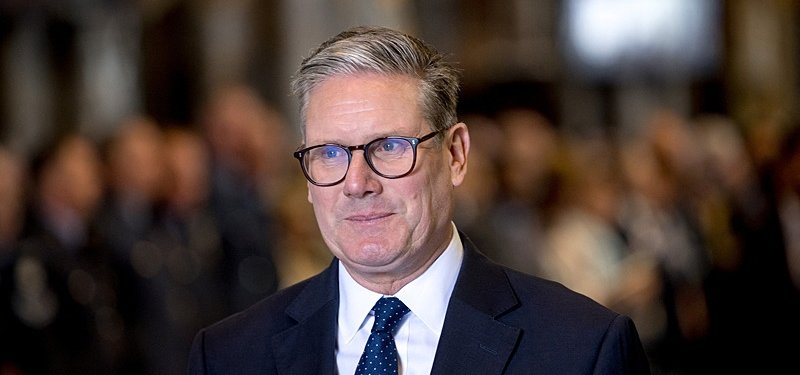
Sir Keir Starmer has delivered a defiant message to Labour MPs, insisting he will not step aside despite growing political pressure, as he framed the challenge from Reform UK as an existential battle for both his party and the country.
Addressing colleagues, the prime minister acknowledged that opposition to his leadership is not new, saying he has faced critics throughout his political journey and continues to do so now. He argued that many of those attacking him are fundamentally opposed to a Labour government in any form, and particularly to one that seeks to deliver lasting change.
“I have had my detractors every step along the way, and I’ve got them now,” Starmer told MPs. “Detractors that don’t want a Labour government at all, and certainly not one to succeed.”
However, he made clear that resignation is not an option, stressing that he feels a deep responsibility to honour the mandate given to him by the electorate. Starmer said walking away would betray voters and risk destabilising the country at a critical moment, drawing a contrast with previous political upheavals that, in his view, led to uncertainty and disorder.
“But I’ll tell you this,” he said. “After having fought so hard for the chance to change our country, I’m not prepared to walk away from my mandate and my responsibility to my country, or to plunge us into chaos, as others have done.”
The Labour leader described the rise of Reform UK as the most serious political challenge of his career, characterising it in dramatic terms as a defining struggle for the future direction of Britain. He warned that the contest is not just about party politics, but about the values that underpin the country.
He labelled the confrontation with Reform UK as “the fight of our lives, the fight of our times,” urging MPs to recognise the scale of what is at stake and to remain united in the face of growing pressure.
Starmer concluded his remarks with a highly personal and emotional pledge, underlining his commitment to continue leading and fighting for what he believes in. He said his resolve would not waver and called on Labour MPs to see the battle as a shared one, rooted in protecting the country’s future.
“I’ll tell you this, as long as I have breath in my body, I’ll be in that fight, on behalf of the country that I love and I believe in, against those that want to tear it up,” he said.
“That is my fight, that is all of our fight, and we’re in this together.”
News
Thai PM claims election victory as Conservatives Take Commanding Lead
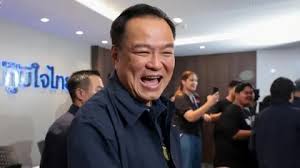
Thailand’s Prime Minister Anutin Charnavirakul has declared victory in the country’s general election, as early results show his ruling conservative Bhumjaithai party emerging clearly ahead of its rivals in a result that has surprised many observers.
Speaking after the release of preliminary vote counts, Anutin said the outcome belonged to “all Thais, no matter whether you voted for us or not,” striking a conciliatory tone as his party outperformed expectations. Opinion polls ahead of the election had widely suggested a strong showing for the reformist People’s Party, but the early figures have instead placed the conservatives firmly in front.
With nearly 90% of ballots counted, Bhumjaithai is projected to win 194 seats in the 500-seat parliament in Bangkok, putting it well ahead of the People’s Party, which is forecast to secure 115 seats. While no single party is expected to gain an outright majority, the scale of Bhumjaithai’s lead places Anutin in a strong position as coalition negotiations begin.
People’s Party leader Natthaphong Ruengpanyawut appeared to acknowledge the outcome, saying he was prepared to serve in opposition should Anutin succeed in forming a government. His comments signalled an acceptance of the result and a willingness to contribute constructively to Thailand’s political future from outside power.
The election was held after a period of prolonged political instability, during which several coalition governments collapsed and the country saw three prime ministers in as many years. Against that backdrop, the apparent return of Anutin and his party offers the prospect of greater continuity and a clearer path forward for governance.
Thai elections are often difficult to predict, and this contest proved no exception. The result represents a significant disappointment for the People’s Party, which had hoped to build on its strong performance three years ago. Expectations of an “orange wave” driven by young, idealistic candidates did not materialise in the way many supporters had anticipated.
Instead, voters appeared to favour Anutin’s pragmatic conservative platform, pushing the reformist movement into second place. The People’s Party, which won the most seats in the 2023 election but was ultimately blocked from taking power, will now remain in opposition, where it is expected to continue advocating for reform within the parliamentary system.
Importantly, the outcome has eased fears of a potential political crisis. Had the reformists won again and once more been prevented from forming a government, tensions could have escalated sharply. By contrast, the current result provides a clearer and more straightforward transition toward coalition talks and government formation
News
Life Sentence Brings Closure After 2024 Attempt on Trump’s Life
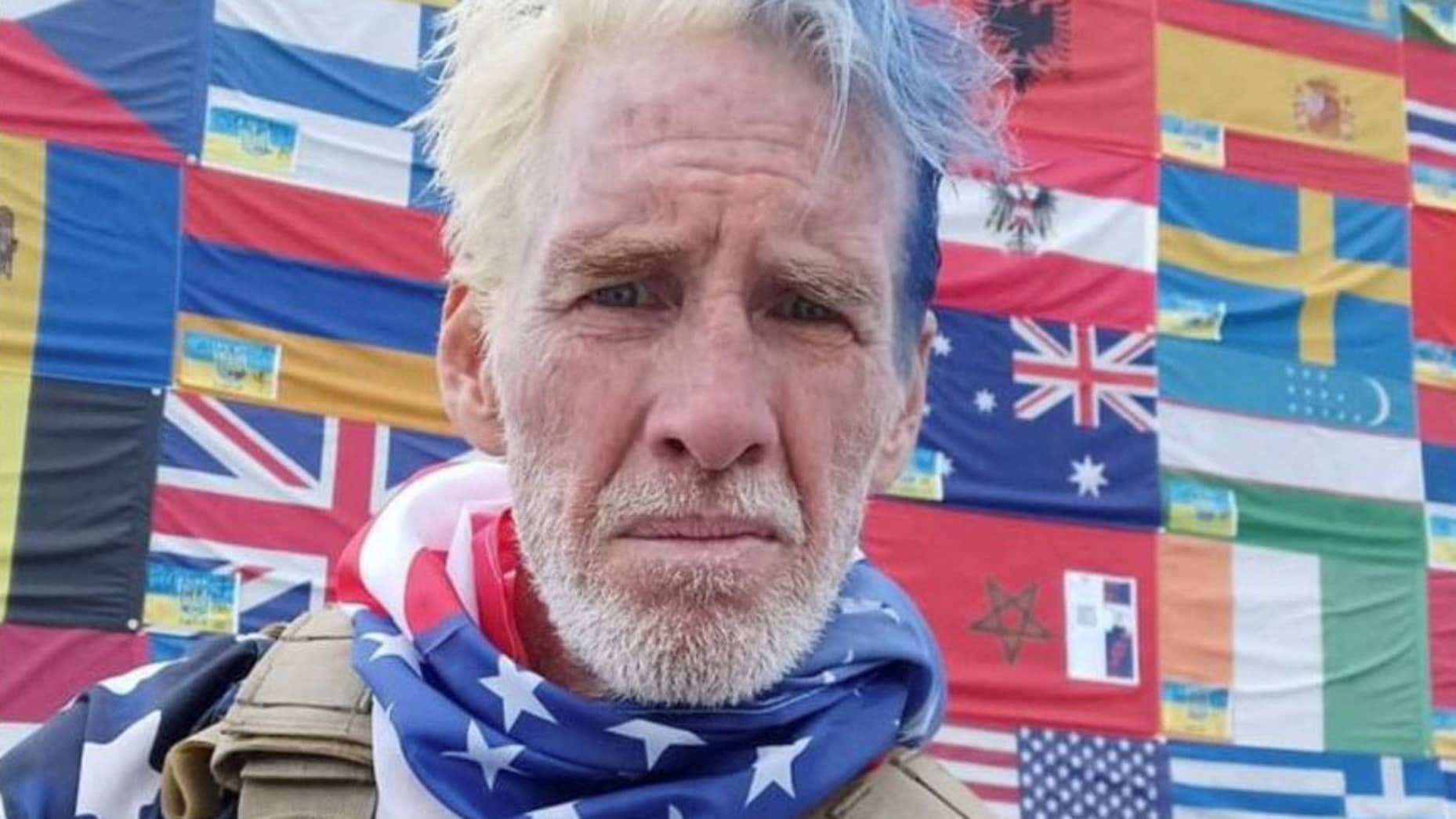
A US federal judge has sentenced Ryan Routh to life in prison for attempting to assassinate President Donald Trump during the 2024 election campaign, bringing a decisive conclusion to one of the most serious security cases in recent American political history.
Routh, 59, was convicted last year of attempting to kill Trump at the Trump International Golf Club in West Palm Beach, Florida, in September 2024, when Trump was still a presidential candidate. The sentencing underscores the gravity with which the US justice system treats threats against democratic processes and national leadership.
In a sentencing memorandum, Judge Aileen Cannon said Routh’s actions “undeniably warrant a life sentence,” citing the sustained and deliberate nature of the plot. She noted that Routh “took steps over the course of months to assassinate a major Presidential candidate, demonstrated the will to kill anybody in the way, and has since expressed neither regret nor remorse to his victims.”
The incident was thwarted after a US Secret Service agent on duty spotted the barrel of a rifle protruding from bushes near the golf course. The agent immediately fired at the suspect, prompting Routh to flee. He was later arrested nearby without further harm to the public or to Trump, a response widely credited to the vigilance and rapid action of security personnel.
Although investigators said Routh did not have a clear line of sight to Trump at the time, federal agents testified that a semiautomatic rifle fitted with a scope and an extended magazine was recovered from the hiding place. Jurors were also told that Routh had compiled a list of locations where Trump was likely to appear and had written a note to a friend explicitly describing the plan as “an assassination attempt.”
Routh, a native of North Carolina who had been living in Hawaii before his arrest, pleaded not guilty and chose to represent himself at trial, which began on 8 September. Throughout the proceedings, he displayed erratic behaviour, at times challenging Trump to a game of golf and making disjointed references to figures such as Adolf Hitler and Russian President Vladimir Putin.
Following the jury’s guilty verdict, Routh attempted to stab himself in the neck with a pen in the courtroom before US marshals intervened and escorted him out, an incident that further highlighted the volatile nature of the case.
In his closing statement, delivered in the third person, Routh ranged across unrelated subjects including US history, the Russia-Ukraine war and his stated plans to buy a boat. Judge Cannon repeatedly interrupted the statement and eventually cleared the courtroom to maintain order.
Prosecutors said the evidence presented left little doubt about Routh’s intentions. Lead prosecutor John Shipley told the court that a “mountain of evidence” demonstrated “how close he got to actually pulling this off,” reinforcing the seriousness of the threat that was averted.
Routh’s lawyer, Martin Ross, confirmed that an appeal would be filed, but the life sentence ensures he will remain incarcerated while any further legal challenges proceed.
The Florida incident was the second attempt on Trump’s life in 2024. In July of that year, a gunman opened fire at a campaign rally in Butler, Pennsylvania, killing one person and injuring several others, including Trump. The shooter, later identified as 20-year-old Thomas Crooks, was shot dead by officers at the scene.
-

 News1 week ago
News1 week agoIranian Nobel Laureate Faces New Sentence as Support and Global Scrutiny Intensify
-

 News1 week ago
News1 week agoRussia Identifies Suspects in Shooting of Senior General
-

 News7 days ago
News7 days agoStarmer Vows to Stand Firm as He Rallies MPs Amid Mounting Political Pressure
-

 News1 week ago
News1 week agoThai PM claims election victory as Conservatives Take Commanding Lead
-

 News5 days ago
News5 days agoNine killed and 25 injured in shootings at school and home in Canada
-

 Entertainment1 week ago
Entertainment1 week agoGraham Norton and Lewis Capaldi Join Taylor Swift for Playful, Star-Studded ‘Opalite’ Video
-

 Entertainment7 days ago
Entertainment7 days agoBad Bunny Breaks New Ground at Super Bowl with Spanish-Language Spectacle Celebrating Unity
-

 News1 week ago
News1 week agoZelensky Says US Aims for June Deadline to End Ukraine War

